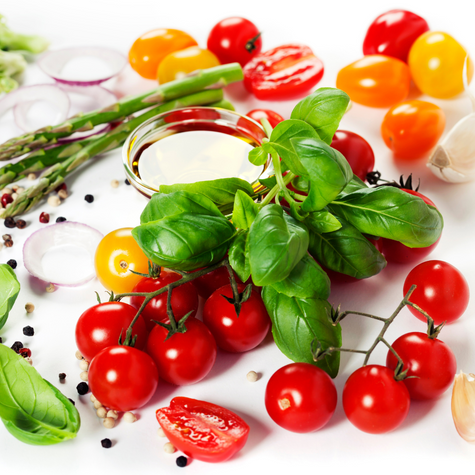When growing plants hydroponically, you must pay attention to keeping your nutrients balanced, your temperatures within range, and your pH balanced. All of these factors can impact the growth of your plant, but if they are mis-managed, may lead to changes in the flavor of your harvest.
Nutrient Toxicity
If you ever experience a significant change in the flavor of your plants 9 times out of 10, you are dealing with a nutrient toxicity issue. This is caused by some plants taking up nutrients at different rates than others, and when grown in the same water, this can make some of your plants unhappy. The most common cause is a natural buildup that happens as you grow and doing a flush of your system (removing all the water and replacing it with fresh water and nutrients) can get you back on track.
Temperature
Another reason your plant's flavor has changed is that it is too hot. When plants get hot, it changes their respiration which can cause them to start breaking down their stored sugars and leads them to tasting bitter. The best way to solve this is to keep the air temp under your lights below 75ºF. You can do this by properly spacing out your plants, or by adding a couple clip-on fans to each level to ensure air flows through your plants.
pH
Lastly, along with nutrient toxicity, sometimes flavor changes can come from nutrient deficiencies, which can be common when growing different types of plants in the same system (like tomatoes with cilantro). The core issue may not be that you are not adding enough nutrients, but actually that your pH is not close enough to 5.8 for proper nutrient uptake. Hydroponic plants require a specific pH to be able to uptake nutrients. When your pH is too high or too low, it will cause your plants to stop uptaking specific nutrients. This leads to changes in flavor due to stress induced by nutrient deficiency. Fixing this problem may require you to obtain a pH test kit (which can be found on amazon for very cheap) and use it to add small amounts of pH Balance until your system is rebalanced.
Nutrient Flavor Facts
Nitrogen: Nitrogen is an essential nutrient for plant growth, and it plays a key role in the production of amino acids, which are the building blocks of proteins. Nitrogen deficiency can lead to slow growth and weak stems, but excessive nitrogen can result in overly lush and vegetative growth, which can dilute the flavor of the plant.
Phosphorus: Phosphorus is important for the development of strong roots and healthy flowers and fruits. It also plays a role in energy transfer and the production of enzymes. Phosphorus deficiency can lead to stunted growth and poor fruit or flower development, while excessive phosphorus can lead to an overly bitter taste.
Calcium: Calcium is essential for the development of strong cell walls, which can help plants resist disease and pests. Calcium deficiency can lead to weak stems and leaves, while excessive calcium can result in a salty or bitter taste.
Potassium: Potassium is important for water regulation and the development of strong stems and roots. It also plays a role in fruit and flower development. Potassium deficiency can lead to stunted growth and poor fruit or flower development, while excessive potassium can lead to an overly salty taste.
Sulfur: Sulfur is important for the production of amino acids and the development of strong proteins. It also plays a role in the formation of certain volatile compounds that contribute to the flavor and aroma of plants. Sulfur deficiency can lead to slow growth and poor flavor development, while excessive sulfur can result in an overly pungent taste.
Copper: Copper is important for the production of chlorophyll, which is necessary for photosynthesis. It also plays a role in the production of certain enzymes. Copper deficiency can lead to chlorosis (yellowing of the leaves) and poor growth, while excessive copper can result in toxicity and an overly metallic taste.
Magnesium: Magnesium is important for the production of chlorophyll and the formation of strong cell walls. Magnesium deficiency can lead to chlorosis and poor growth, while excessive magnesium can lead to a bitter taste.
Manganese: Manganese plays a role in the formation of certain enzymes and in photosynthesis. Manganese deficiency can lead to chlorosis and poor growth, while excessive manganese can result in toxicity and an overly metallic taste.
Boron: Boron is important for the development of strong cell walls and the transport of sugars. Boron deficiency can lead to poor growth and fruit or flower development, while excessive boron can result in toxicity and an overly bitter taste.
Iron: Iron is important for the formation of chlorophyll and the transport of electrons in photosynthesis. Iron deficiency can lead to chlorosis and poor growth, while excessive iron can result in toxicity and an overly metallic taste.



